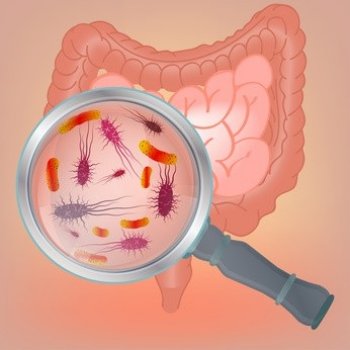
When to Worry About Diarrhea in Adults: Signs You Shouldn’t Ignore
Diarrhea is a common digestive issue that affects most adults at some point. While it is usually mild and resolves on its own, persistent, severe, or recurring diarrhea may indicate an underlying health problem that requires medical attention.
But how do you know when diarrhea is serious? Here’s a guide to understanding when to worry and seek professional care from a gastroenterologist.
When Should You Be Concerned About Diarrhea?
Occasional diarrhea is normal, but if you experience any of the following symptoms, you should consult a doctor:
1. Diarrhea Lasting More Than Two Days
Most cases of diarrhea improve within 24 to 48 hours. If your symptoms persist for more than two days, it may indicate:
- A bacterial, viral, or parasitic infection
- Food poisoning
- A digestive disorder like irritable bowel syndrome (IBS) or inflammatory bowel disease (IBD)
2. Signs of Dehydration
Diarrhea causes excessive loss of fluids and electrolytes, leading to dehydration, which can be dangerous if not managed properly. Watch out for these symptoms:
- Dry mouth and skin
- Extreme thirst
- Dizziness or lightheadedness
- Dark yellow urine or reduced urination
- Fatigue and confusion
If you experience these symptoms, immediate hydration is essential. Oral rehydration solutions (ORS) or electrolyte-rich fluids can help, but severe dehydration requires urgent medical attention.
3. High Fever (Above 102°F or 38.9°C)
A fever alongside diarrhea might indicate a bacterial or viral infection, such as:
- Salmonella
- E. coli
- Rotavirus or norovirus
If your fever persists or worsens, consult a gastroenterologist in for diagnosis and treatment.
4. Blood in Stool or Black, Tarry Stools
Blood in diarrhea is a red flag that should never be ignored. It may appear as:
- Bright red blood (fresh bleeding from the lower digestive tract)
- Dark, black stools (internal bleeding from the stomach or small intestine)
Possible causes include:
- Gastrointestinal infections
- Peptic ulcers
- Colon polyps or colorectal cancer
If you notice any blood in your stool, seek immediate medical attention.
5. Severe Abdominal Pain or Cramping
Mild cramping is common with diarrhea, but severe or persistent pain may be due to:
- Appendicitis
- Gallbladder disease
- Crohn’s disease or ulcerative colitis
- Diverticulitis
Pain in the lower right abdomen could indicate appendicitis, which is a medical emergency.
6. Recurring or Chronic Diarrhea
If you frequently experience diarrhea for weeks or months, it may be a sign of an underlying digestive disorder, such as:
- Irritable Bowel Syndrome (IBS)
- Lactose or gluten intolerance
- Celiac disease
- Chronic infections or parasitic infestations
A specialist can help diagnose and manage chronic diarrhea with dietary and medical interventions.
Common Causes of Persistent or Severe Diarrhea
Diarrhea can be triggered by various factors, including:
1. Infections (Viral, Bacterial, or Parasitic)
- Contaminated food or water may cause food poisoning
- Viruses like norovirus and rotavirus are common culprits
- Bacteria like Salmonella, E. coli, and Campylobacter can lead to severe illness
2. Medication-Induced Diarrhea
Certain medications can disrupt digestion, including:
- Antibiotics (which kill both good and bad gut bacteria)
- Antacids containing magnesium
- Chemotherapy drugs
3. Digestive Disorders and Food Intolerances
- Lactose intolerance (inability to digest dairy products)
- Celiac disease (gluten intolerance)
- IBS or IBD (chronic digestive conditions)
If you suspect a food intolerance, keeping a food diary and consulting a gastroenterologist can help identify triggers.
How to Prevent Diarrhea?
While some causes of diarrhea are unavoidable, you can take preventive measures to reduce your risk:
✔ Maintain Good Hygiene: Wash hands frequently, especially before eating and after using the restroom.
✔ Ensure Food Safety: Avoid consuming raw or undercooked foods and drink only clean, filtered water.
✔ Avoid Contaminated Water: When traveling, stick to bottled water and avoid street food.
✔ Manage Stress: Anxiety and stress can trigger IBS-related diarrhea.
✔ Check Medications: If a medication is causing diarrhea, talk to your doctor about alternatives.
When to See a Gastroenterologist?
If diarrhea is persistent, severe, or accompanied by concerning symptoms, it’s time to consult a specialist.
For expert digestive care, Dr. Suresh Jain at Digestive Endoscopy Clinic is one of the most trusted gastroenterologists in Pune. With over 20 years of experience, he specializes in diagnosing and treating various gastrointestinal conditions, including chronic diarrhea.
Diarrhea is usually a minor issue, but in some cases, it can signal a more serious condition. If you experience severe symptoms, dehydration, prolonged diarrhea, or blood in the stool, seek medical attention immediately.
For expert care and guidance, consult Dr. Suresh Jain, a highly experienced gastroenterologist in Pune, to get the best diagnosis and treatment for your digestive health.
